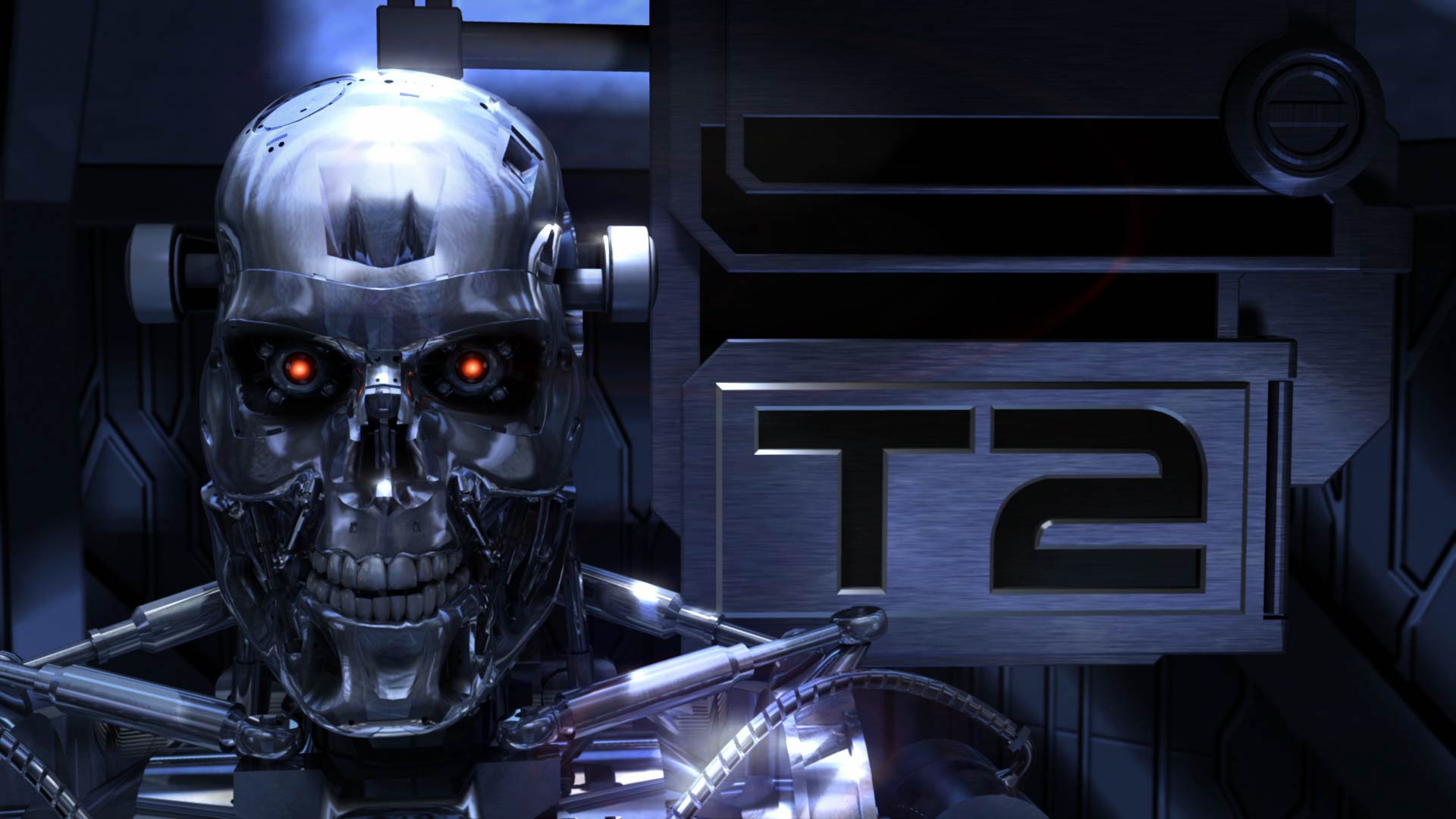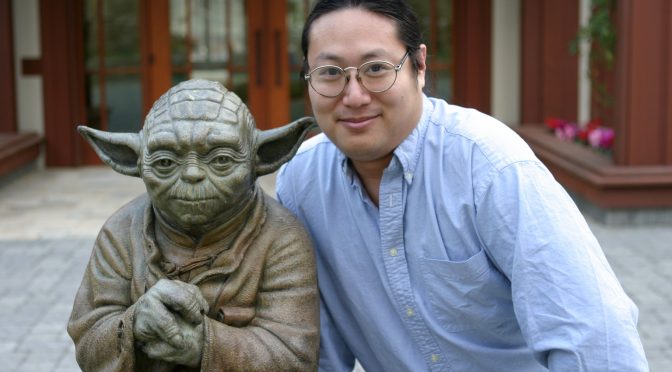En 2007, j’ai demandé à trois producteurs stars de DVD ce qu’ils pensent de la HD, est-elle tout bonus ?
Van Ling, concepteur d’effets spéciaux, proche collaborateur de James Cameron a conçu les DVD de Titanic, The Abyss, Starhip Troopers, Star Wars Trilogy… Excusez du peu !
Version originale anglaise complète ci-dessous après la VF éditée pour publication…
Version française éditée pour publication papier…
Bliss : Quel est le premier film/DVD sur lequel vous travaillez avec un format HD ?
Van Ling : J’ai travaillé sur 9 Blu-ray l’année dernière, y compris Terminator 2, mon premier. S’agissant de disques contenant seulement le film, ils m’ont donné l’occasion d’apprendre ce qui marche ou pas. Je suis actuellement sur le Blu-ray d’Independance Day et nous expérimentons des idées utilisant la programmation Java sur Blu-ray.
Bliss : Avez-vous une approche différente pour les bonus selon les formats HD DVD et Blu-ray ?
Van Ling : Entre la SD et la HD, surtout. Les objectifs sont les mêmes mais il y a plein de choses à réapprendre et beaucoup plus de problèmes de programmation, surtout pour la navigation dans les menus.
Bliss : Si l’un de vos précédents DVD ressort en HD, y travaillerez-vous ?
Van Ling : Oui parce que je sais déjà ce qui a été fait et que j’ai une bonne idée comment le surpasser. Il faudrait pouvoir inclure ce qui a été fait sur DVD et ensuite créer des choses inédites qui tiennent compte des nouvelles possibilités.
Bliss : Comment allez vous effectuer la transition entre SD et HD pour les documents d’archives déjà mastérisés ou à venir ? Est-ce utile de filmer documentaires et interviews en HD ?
Van Ling : Oui, nous filmons tout en HD. La majorité des films transférés en vidéo ces 8 dernières années l’ont été en HD, donc exploitables tel quel. Quand ils achètent un disque HD, les consommateurs s’attendent à ce que les suppléments soient en HD. Comme les vieux documents ont été filmés en vidéo SD ou 16mm, c’est un challenge de décider comme présenter une featurette mélangeant les formats.
Bliss : Les réalisateurs avec qui vous travaillez sont-ils concernés par la HD ?
Van Ling : Les plus jeunes sont déjà au courant des nouvelles possibilités des formats HD et participent. Les réalisateurs vétérans y voient d’abord une nouvelle manière d’intéresser plus de spectateurs.
Bliss : Les fonctions interactives propres au Blu-ray et au HD DVD ouvrent-elles de nouvelles possibilités ?
Van Ling : Oui mais c’est un vrai challenge parce qu’il s’agit plus de programmation créative que de création artistique. Nous sommes au point où les formats HD doivent faire leur preuve auprès des consommateurs, avec ce côté « essayons tout pour voir ce qui leur plait». Il y a beaucoup de gimmicks.
Bliss : Que pensez-vous des problèmes de compatibilités provoqués par ces nouvelles interactivités ?
Van Ling : Ces formats HD ont clairement des constitutions informatiques. Cela donne autant de possibilité de faire des choses que de les rater. Quand quelque chose ne fonctionne pas, vous n’êtes jamais sûr si cela vient du design, de la programmation, de la fabrication ou du lecteur.
Bliss : Avez-vous une préférence professionnelle entre le HD DVD ou le Blu-ray ?
Van Ling : J’ai surtout travaillé sur Blu-ray. Étant donné qu’une grande partie du succès de ces formats va dépendre de l’industrie du jeu vidéo qui a l’habitude de la cohabitation de formats, je ne pense pas qu’il y aura un vainqueur définitif.
Propos recueillis et traduits en mars 2007 par François Bliss de la Boissière
Lire aussi…
- Charles de Lauzirika : DVD producteur pour Ridley et Tony Scott
- Kim Aubry : DVD producer pour France Ford Coppola
Version originale complète de l’interview…
Bliss : Do you think there is a need for high definition bonus or is it still for some happy few passionate? Meaning, is it worth the efforts for you, the studios and even the movie directors?
Van Ling : I’ve always said that DVD producers are the most optimistic people in the film business, because we put our blood, tears toil and sweat into creating materials that only a very small number of people will ever watch. But I do think that it’s worth the effort, because it can be a winning situation for all parties: the filmmakers get the chance to discuss their visions, the studios have more to sell and the viewers get more for their money, even if they don’t care to watch it. As for us DVD producers, some of us enjoy the challenge of extending a narrative/universe and exploring new ways of educating and interacting with viewers.
Bliss : What is the first film you worked, or are working on, that is going to be released on any HD formats?
Van Ling : I actually worked on nine Blu-ray titles last year, including T2 (which was my first), but these were essentially « movie-only » discs that gave me an opportunity to learn how the format works (or doesn’t work, as the case may be). I am currently working on « Independence Day (ID4) » for Fox on Blu-ray, and we are exploring some new bonus feature ideas using Blu-ray Java programming.
Bliss : Do you have a different approach regarding extras on HD DVD or Blu-ray?
Van Ling : If you mean as opposed to standard DVD, yes. Even though most of the goals are the same (movie, commentaries, bonus content), the formats are completely different in terms of technical approach. There’s a lot of things you have to learn to do anew, and a lot more programming issues you have to keep in mind while you are designing and creating materials, especially for the menus and navigation.
Bliss : If, or when, one of your previous DVD is re-released on a HD format, will you work on it ? Would the bonus be a simple transfer from the DVD or would you work again on it?
Van Ling : I expect to be working on many of the HD versions of the titles I’ve previously done, simply because I already know how and what I’ve done before, so I have a good idea of how to surpass it. I feel that we should be able to include what we’ve done before on DVD as a starting point on the HD version, and then create new material that takes advantage of the new format’s capabilities.
Bliss : Did the digital transfers of past archives have been readied for HD formats and could be ported without going back to the digital scan? What is your opinion regarding those past documents? Going HD with them or keeping the already digital transfer? What is the position of the studios you work with regarding this issue?
Van Ling : Most films that have been transferred to video in the past seven to eight years were transferred to HD in the first place, so many of them are already usable. But I believe most studios assess how the existing HD transfers look in light of today’s technologies, and if they feel that the new equipment can yield an appreciably better transfer, they will do it.
Bliss : What about future archives you might dig up, which kind of technical treatment would you do for the HD formats (or not)?
Van Ling : Most older archival material tends to have originated on standard-definition video or 16mm film, so it is more of a challenge to decide how to present a mixed-format documentary or featurette. But with the advent of the new HD formats, more and more special features are being done in HD, because consumers expect that when they buy an HD disc, as much of the content as possible will be in HD format.
Bliss : Are you shooting your documentaries and interviews in HD ? Since when, or do you plan to? Is it relevant to do so?
Van Ling : Yes, for current films, all of the material is shot in HD, as are all interviews and new footage shot for bonus material on older titles. It is generally accepted as a good practice to shoot in HD if it can be afforded, even if you are currently finishing the project in standard definition. All of my projects going forward will likely be in HD.
Bliss : Are movie directors you work with concerned, interested by those high def contents that they may have to provide for future HD DVD or Blu-ray releases? Whether for a new projects or past projects?
Van Ling : The younger generations of filmmakers are already savvy to the possibilities of the HD formats and are usually very open to creating or participating in new HD content, while the older generation of directors view it as a good way to get more people to experience their films, which are still the most important component of any release. They are usually thrilled to see their films in such high resolution.
Bliss : Both HD DVD and Blu-ray may be programmed for some special interactivities during movie footage… Did you start working on that technology? Is it easy to do? Does is really open some new doors for you as a DVD producer and maybe the consumer or is it just a gimmick?
Van Ling : Yes, I am working with the technology and it can be a real challenge, because it’s more about creative programming than traditional creative work. We are currently at the stage where the HD formats have to prove themselves to the consumer as being more worth getting than regular DVD, so there’s a lo of the same « shotgun » approach to interactive features… let’s try everything and anything and see what strikes the consumer. There are a lot of gimmicks, but I hope that some of them will evolve into actual useful features. I know I’m doing my part…
Bliss : There seem to have some compatibility issues with those interactive programs, whether on Blu-ray players or the LG Blu-ray HD DVD combo that doesnt play HD DVD interactive programs. How do you deal with that?
Van Ling : These HD formats are much more clearly computer formats, and the more like a computer your format is, the more capabilities you have… but the more opportunities you have to mess things up. We are still in the preliminary phase in which the formats are evolving, and when something doesn’t work, you’re never quite sure if the problem is due to the design, the programming, the manufacturing, or the player. From my standpoint, I just keep pushing. I find out what they think the format can do, and then come up ways for it to do more. And try to work with people who are willing to try it.
Bliss : Do you have a preference as a professional between the two formats : Blu-ray and HD DVD?
Van Ling : My experience so far has been exclusively with Blu-ray, so I am more familiar with it, but I am learning more about HD-DVD as well. Given that a significant portion of the success of these formats is going to depend on the video game industry -which has a history of multiple formats co-existing-I don’t think there is going to be one definitive winner. And the only way the consumer will win is if there are really good combo players so the viewers never have to worry about whether they can or cannot play any disc they buy.
Propos recueillis et traduits en mars 2007 par François Bliss de la Boissière

